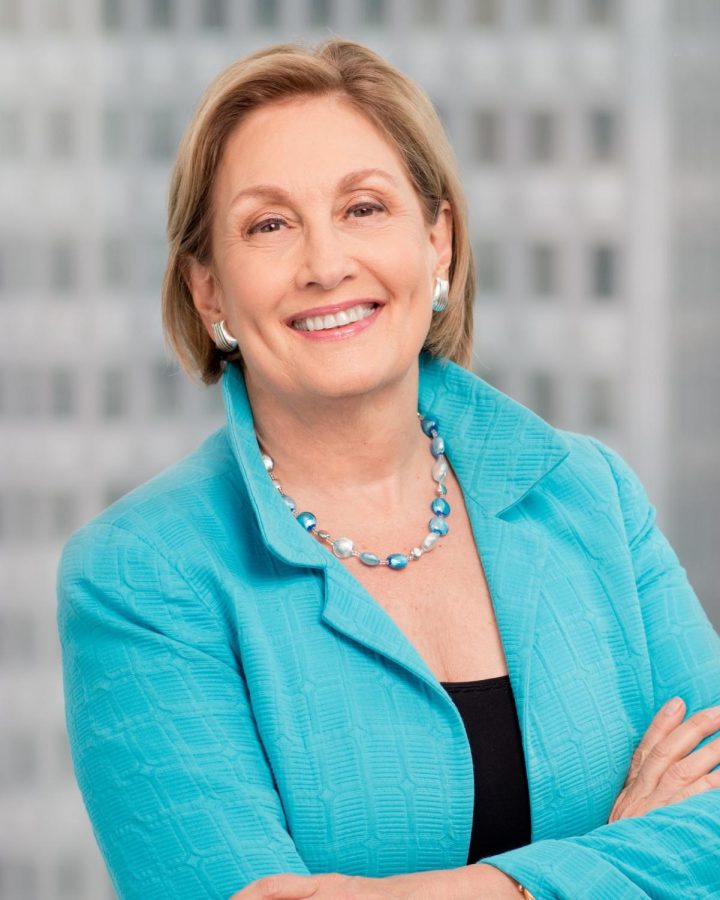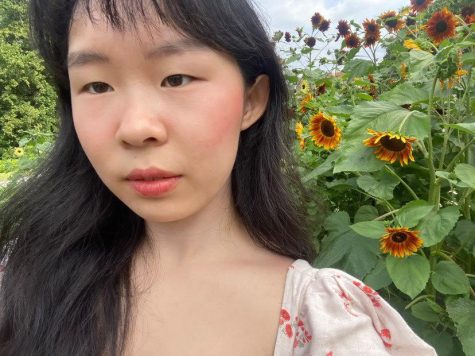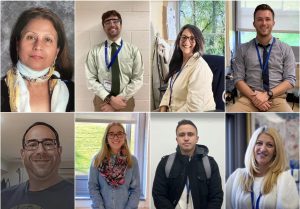Notable Alumni Interview Series #7: Jamie Gorelick
January 3, 2023
Named a 2018 “Lifetime Achiever” by The American Lawyer and a “Lawyer of the Year” by Best Lawyers in America, Jamie Gorelick (Class of ‘68) has had a career spanning the legal, policy and corporate landscapes. As one of Washington’s best-known litigators, Ms. Gorelick has represented corporations and individuals in a wide array of matters, particularly in the regulatory and enforcement arenas, involving issues as diverse as antitrust, environmental regulation, securities enforcement, national security regulation, etc. She is among our leaders in congressional investigations, has helped many institutions address issues relating to gender and race, and is sought as a counselor on climate issues. A leader in the bar, she was President of the District of Columbia Bar from 1992 to 1993 and has played many important roles in the American Bar Association.
Ms. Gorelick was one of the longest serving Deputy Attorneys General of the United States, the second highest position in the Department of Justice. In that role, she supervised the entire Department, including its litigation and law enforcement divisions and the United States Attorneys’ Offices. Ms. Gorelick arrived at Justice from the Department of Defense, where she was General Counsel. There, she helped structure the Department’s involvement in the consolidation of the defense industry in the 1990s and was awarded the Secretary of Defense Distinguished Service Medal for her service. Earlier in her career, Ms. Gorelick was Vice Chair of the Task Force on the Audit, Inspection and Investigation Components of the Department of Defense. She was also Counselor to the Deputy Secretary of Energy and Assistant to the Secretary, who awarded her the Secretary’s Outstanding Service Medal.
Ms. Gorelick has served on numerous government boards and commissions, particularly in the national security arena. She is a current member of the Defense Policy Board and a former member of the Defense Legal Policy Board at the US Department of Defense. Ms. Gorelick was a member of the bipartisan National Commission on Terrorist Attacks Upon the United States (the “9/11 Commission”). She was a long-serving member of the Defense Policy Board and is a former member of the Defense Legal Policy Board at the US Department of Defense. She also was a member of the CIA’s National Security Advisory Panel, former President Bush’s Review of Intelligence Committee and former President Clinton’s Advisory Committee to the Presidential Commission on Critical Infrastructure Protection (which she co-chaired), among others. She maintains a strong interest and expertise in cybersecurity and other aspects of national security. She was a member of the Commission on Science and Security at the Department of Energy and the Continuity of Government Commission.
SL: When did you attend Great Neck South High School? What was your most memorable experience?
JG: I graduated in 1968, and I started in junior high. I came to Great Neck Junior High from Kensington, which I attended from kindergarten through sixth grade. My senior year was the most memorable. It was 1968 and Martin Luther King and Bobby Kennedy were assassinated. There were riots across America. Most major cities were on fire. The war in Vietnam was escalating. It was a very, very tough and sobering time to be a senior.
SL: Was there a teacher at South that particularly influenced you?
JG: I had a number of teachers who were terrific. It was a great high school. All of my courses were AP courses, so all of the kids who were in those classes were in every class together. I had classes with Mark Kelman, as well as my husband who I actually met in junior high school. When I got to Harvard, I was among the better prepared, even though half of the class had gone to prep school. The Great Neck school system prepared me very well.
SL: Did you participate in any clubs or sports at South?
JG: Girls could play in gym class, but there were no intramural sports at all. In fact, the rules for girls sports in New York State were antique, to say the least. I like to play basketball, but the rules for girls basketball were that you could only play to the half court and that you had to pass the ball over the half court line unless you were the rover, in which case you could take the ball with you. You could only bounce the ball three times. I think the whole concept was that girls were so delicate and shouldn’t sweat and be rough. Playing sports as a girl in the mid- to late-60s was quite strange.
I was in student government. I was very active in democratic politics. I worked for Bobby Kennedy until he was assassinated. I worked for Jean McCarthy. I stamped envelopes. I did everything I could to help one or the other of them get elected.
SL: Were those internships?
JG: No, that was just showing up. There was no such thing as an internship back then. You showed up and asked if you could help and that was it.
SL: Did your interest in law begin at South?
JG: I went to college thinking I wanted to be an academic and study history. I did not imagine I would be a lawyer until after I had a fellowship and went to England after my senior year in college. I realized I did not want to be an academic because I wrote a thesis my senior year. Although I found the ideas very interesting, I didn’t like the solitary nature of it. So at the very last minute, I gave up the fellowship and applied to law school.
SL: After South, you attended Harvard and Harvard Law School. Why did you choose Harvard?
JG: My parents had a friend who was a teacher at Harvard who spoke very highly of it. I visited and I thought it would be terrific. My parents did not think I could get in. And my guidance counselor really thought I couldn’t get it. She wanted me to apply to only the state schools. But I had other ideas.
SL: You were the first female lawyer at Miller, Cassidy, Larroca & Lewin and one of the few female U.S. Deputy Attorney Generals to this day. Can you speak about entering a male-dominated field? Has your experience evolved over time?
JG: Throughout the course of my career, I have been the first or only woman for a very long time in many male dominated spaces such as the practice of criminal law, where I started my legal career, the national security arena, the business community, and corporate boards. I just got used to it. You have to have a sense of humor and you have to understand that people might not understand you or what you could bring to the table in the first instance. But in the end, you make your value known and understood. You make yourself indispensable in some way.
I started off in this wonderful little law firm and then I went into government in the Carter administration for 18 years, where I went first to defense, and then to energy. Then, I came back to the law firm. There was what I would call the long democratic drought of the Reagan and Bush years. When Bill Clinton was elected, I went back into the government, first to defense and then to justice. I have been since then on multiple boards and commissions involving national security and other issues while also practicing law, serving on corporate boards, and working in the nonprofit world. I’ve led a very varied life.
SL: How did you become U.S. Deputy Attorney General?
JG: I had a lot of experience in the kinds of matters that the Department of Justice concerns itself with. At the beginning of the Clinton administration, I was one of the very few Democrats who had served in the Department of Defense before, and I was one of the very few women. Bill Clinton asked me to go over to defense as general counsel. Before I actually began, however, the White House asked me to help Janet Reno get confirmed as Attorney General. I didn’t know her, but we became very good friends. When she and her then Deputy Attorney General parted ways, nine months into his tenure, she called and asked if I would come and be her Deputy Attorney General. I told her that it was crazy to think that there could be two women at the top of the Justice Department. She was the first female Attorney General, and I did not think that the President would want the AG and the Deputy AG to both be women. But she asked the President to do that and he agreed.
SL: What was your most significant memory as Deputy Attorney General?
JG: The Justice Department has a very broad remit from civil rights to antitrust. It oversees the FBI, the Drug Enforcement Administration, and at that point in time, the Immigration and Naturalization Service. It’s a very big management job. And then things happen, such as the set bombing of the Murrah Building in Oklahoma City, which killed hundreds of people, including children, and which was one of the first major acts of domestic terrorism that we’ve seen in this country. It was a searing experience, and we successfully investigated and prosecuted the people who did it. There are many significant cases that came up during my tenure, but that one is notable for its resonance with me today.
SL: Having served in several eminent positions throughout your career, is there a lesson or insight you’ve gained regarding bearing responsibility and having influence on so many people?
JG: You’re offered an opportunity to do good. I thought I would just do my job as best as I could. I was 43 years old when I took the position of Deputy Attorney General. I had a lot of experience, both in practicing law and the government, but nobody is really trained for all of the job. Because as I mentioned, it’s very broad. I brought in a lot of great people to help me including the current Attorney General, who was one of my principal aides. Together, we really worked hard and I think we did a very good job in trying to keep the country safe and deal with crime and acquit civil rights. We had to address the bombings of abortion clinics and black churches to protect the right to vote. There were many issues that are very similar to those today.
SL: I’m interested in your role as General Counsel of the Defense Department. What was the role like? How did you confront the challenges you faced?
JG: The Defense Department is the biggest department. It has the biggest healthcare system, the biggest educational system, and the largest employee base of any organization on Earth. If there is an issue in society, it’s going to arise there. That meant that determining whether women could serve in combat, whether sexual orientation is concerned in the military, and what to do about violence and threats around the world. All of those things end up one way or the other on the plate of the General Counsel, who is the chief legal officer of what is the largest law firm on Earth. It’s a big management job and a huge and sprawling legal job. Your decisions implicate both law and policy. It was a very steep, but also really fascinating, learning curve for me. The other thing about serving in the DOD was that I was offered the opportunity to fly in an engineless plane, which is how they teach cadets at the Air Force Academy to fly. I soared above the Air Force Academy in the Rockies with an instructor who was the equivalent of a college junior. I landed on an aircraft carrier and I shot many different kinds of weapons. So I could experience a little bit of what those who serve in the military would experience. The most interesting thing about serving in a civilian capacity at the Defense Department is that you’re serving with people who have chosen a career in which they’re willing to give up their lives for their country. That kind of commitment to public service is extraordinary and a lesson to anyone who works alongside people like that.
SL: You’ve served on the boards of Amazon, Verisign, the MacArthur Foundation, the Harvard Board of Overseers, the Carnegie Endowment, and more. Why did you decide to take on these positions? Are your responsibilities on each board different?
JG: Each one of them is interesting in their own right. I have had in the course of my career, what I consider to be a portfolio of activities that compliment one another. I work for nonprofits and all of them cross pollinate the others. I take what I learn from one and apply them in the other venues. That’s been fascinating and very helpful for me.
I chair the board of the Urban Institute, which is the largest, domestic-oriented think tank research organization in the country. Chairing a nonprofit board is very different from serving as a board member. Serving as a board member involves a lot of hard decisions and hard work. I like being a board member, and I think I am constructive in that setting. I like working with other people who are different from myself, which is one of the themes throughout my career. I like being with people who are not like me.
SL: You said in an interview with Harvard Law Today that “Twenty years out, we are certainly not united and the divisions among us make engagement awfully difficult…I hope that those words and those concepts do not become antique.” How do we individually, collectively, and politically prioritize unity?
JG: I’m not giving up on it. Darn it. I know that a lot of people have. My experience on the 9/11 Commission, on numerous boards, and in my law firm, which has people of all different political views and leanings, all tell me that. While there may be some structural reasons why people in the country are at each other’s throats right now, I don’t think this is set in stone and that we will always be that way. I think the impulse for unity remains after the 9/11 Commission tendered his report to the country. We went around as commissioners around the country speaking to anyone who would listen. We went in bipartisan pears—a Democrat with a Republican. The most interesting thing was that our audiences, all over the country, wanted to know not just about the substance of what we had written, but how it was that we could be unanimous when the 10 of us were picked by the most political people in the nation to represent the two parties on this commission. We did it. We did it by looking at the facts and making sure that our preconceptions did not drive our conclusions. If the facts suggested otherwise, we did it because we ended up seeing each other as human beings. Those are the things that need to happen if we are going to have a unified country.
SL: In that interview, you also described your worry about “the failure of imagination” and our fleeting memory of historically-significant events. How can we critically and cohesively imagine? What can be done to prolong our memory of these events?
JG: You’re going to graduate in under a year, in 2023. You’re talking to somebody who graduated in 1968. The fact that you are curious or that you have any readers for these interviews suggest that there are ways for us to remember history. I talk to my kids, who are 29 and 35, about history all the time. I remind them of events that happened both in my and my husband’s life. But also, through history books, we have to remember what came before. It is really possible to think that what is happening in this country today has never happened before without knowledge of history. But it has happened before, in this country and elsewhere. Knowing how we deal with real challenges to our unity and our sense of purpose is very important for getting through the challenges we face today.
SL: What advice would you give to high school students, young lawyers, or anyone in the process of figuring out themselves and their future?
JG: Don’t be afraid to make mistakes. Stretch yourself so that you are always learning. Take risks. Be driven by purpose. Make and keep friends.
SL: What are you working on now? What’s next for you?
JG: One of the things I like about practicing law is that it changes over time. I hardly do the same thing from year to year, or even month to month. What I’m working on and spending a lot of time now is reviewing how companies and universities and other institutions approach racial equity. The murder of George Floyd and the racial reckoning that occurred in the country in the immediate aftermath has received the attention of institutions across the United States and many of them are reflecting on how they deal with racial issues. We have a strong group committed to addressing discrimination and thinking about how institutions can behave in an equitable manner. That is a lot of what is taking my attention now. Over the last six months, I’ve worked hard to elect Democratic candidates in the House and Senate. I am at this moment waiting for the results of those efforts.








